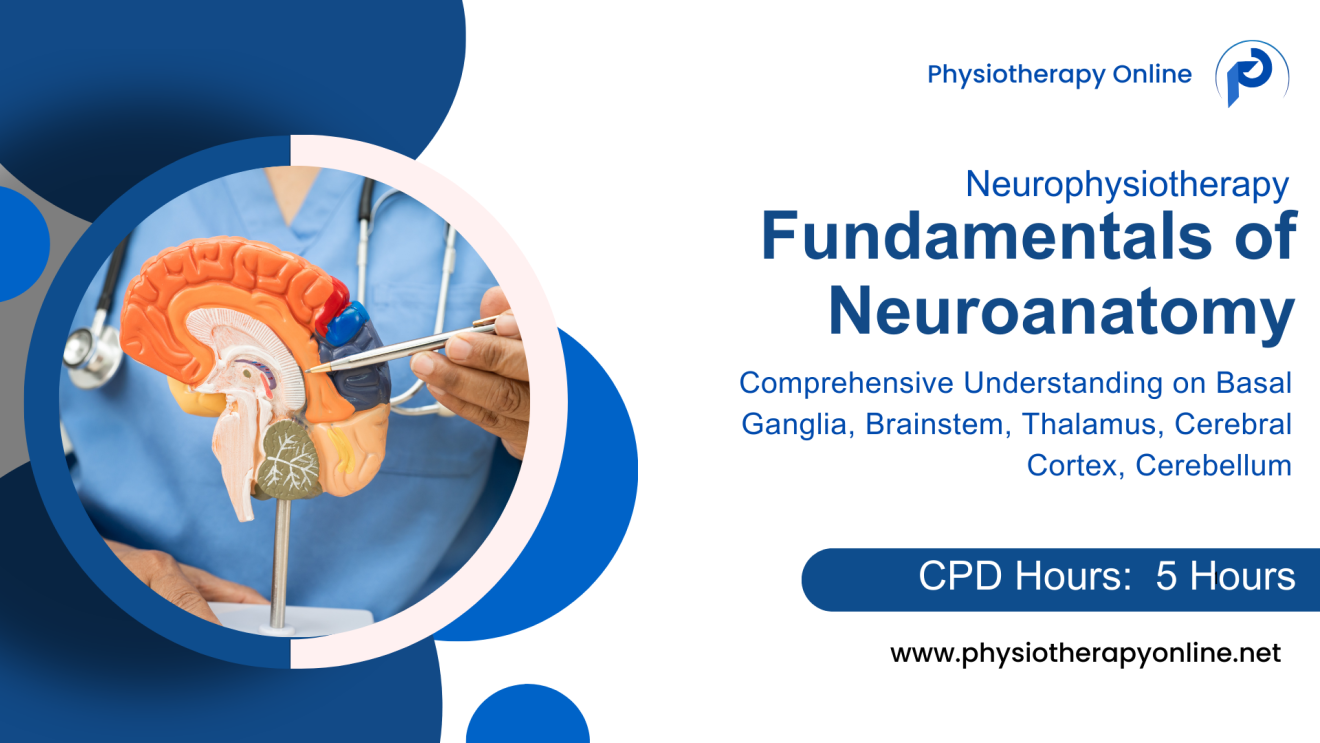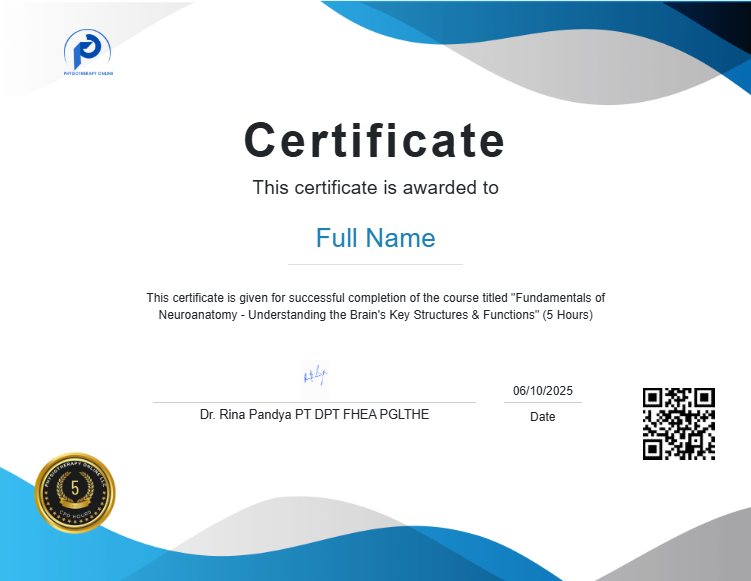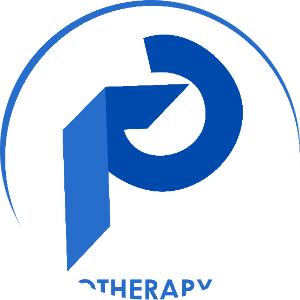About Course
This comprehensive physio course delves into the essential aspects of neuroanatomy, with a specific focus on the basal ganglia, cerebral cortex, brainstem, thalamus, and the intricate anatomy of the brain's neural structures. Designed for physiotherapists, medical students, and other healthcare practitioners, this course offers a foundational understanding of the brain's anatomy and its direct application to neurological assessments, diagnosis, and rehabilitation. Understanding the structure and function of these critical areas of the brain is key to enhancing clinical practice and improving patient outcomes in neurophysiotherapy.
Learning Objectives:
By the end of this course, participants will be able to:
Understand the basic structure and functions of key neuroanatomical regions, including the basal ganglia, cerebral cortex, brainstem, and thalamus.
Identify and describe the anatomical pathways involved in motor control, sensory processing, and neurological functions.
Explore the roles of the basal ganglia, cerebral cortex, and brainstem in movement, cognition, and autonomic regulation.
Understand the relationship between neuroanatomy and clinical practice, particularly in the rehabilitation of neurological conditions.
Gain insight into the clinical implications of neuroanatomical damage and its impact on patients with neurological disorders.
Learning Outcomes:
Upon successful completion of this course, participants will:
Have a strong foundational knowledge of neuroanatomical structures, particularly those most relevant to physiotherapy and healthcare practice.
Be able to recognize and interpret neuroanatomical terms and concepts in clinical scenarios.
Understand the relationship between specific brain regions and their roles in motor, sensory, and cognitive functions.
Develop the ability to apply neuroanatomical knowledge to improve patient assessment and treatment strategies in neurological rehabilitation.
Demonstrate enhanced confidence in working with patients with neurological conditions by understanding the underlying anatomical processes that affect them.
This course will equip participants with the theoretical understanding needed to apply neuroanatomy in clinical practice, ensuring that physiotherapists, medical students, and other healthcare practitioners can optimize their assessment and treatment approaches in neurological care.
Who Should Enroll
- Physiotherapist
- Pediatric Physiotherapist
- Occupational Therapist
- Musculoskeletal Physiotherapists
- Medical Students
CPD Credit Hours
Duration: 5 Hours ( 3h.40min videos + 1.15 hour extra resource materials)
Resources
- 30 Days Access to Learning Resources
- Downloadable Course Material
- CPD Certificate
Author profile:
Dr. Srishti Banerjee PT MPT ( Neurology)

Dr. Srishti Banerjee is an accomplished physiotherapist with Master in neurology. Her journey includes a BPT from Gujarat University and an MPT in Neurology. She's held roles as a Consultant Physiotherapist and Lecturer.
Dr. Banerjee is an author, contributing to a book on peripheral nerve lesions and a chapter on aquatic therapy.
She's published original articles in various journals and explored topics like hamstring flexibility and the environmental impact of NSAIDs. Srishti is an online educator, offering MOOC courses on sustainable healthcare and shoulder dysfunction post-stroke.
She shares her insights through blogs on neuroplasticity and preoperative physiotherapy. As an author, she's explored sleep disturbance in spinal cord injury patients and the impact of COVID-19 on the nervous system.
She's also a one-page owner on Physiopedia. Through webinars, Srishti covers various topics, including mental health in physiotherapy and environmental sustainability. Her commitment to improving patient care and promoting sustainability in healthcare is evident in her work as an Assistant Professor L. J institute of Physiotherapy, LJ University.
Disclaimer: Our online physiotherapy courses meet the criteria and guidelines for CPD (Continuing Professional Development). The CPD hours indicated on the certificate contribute towards fulfilling professional standards and requirements necessary for CPD audits conducted by the HCPC and AHPRA. These CPD hours are important for maintaining physiotherapy registration and ensuring compliance with CPD audit and Physiotherapy registration renewal processes. Our courses are recognized as valuable continuing education resources across the UK, Australia, New Zealand, and throughout Asia and the Middle East.


